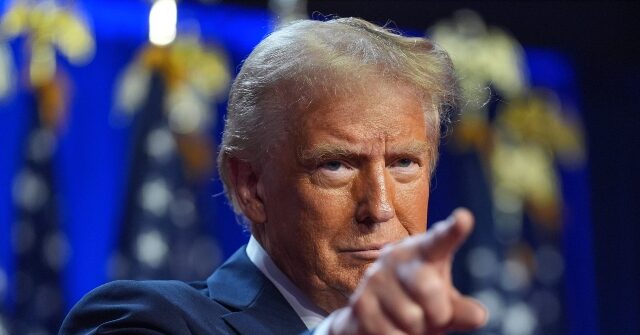In a recent interview with TIME Magazine, President-elect Donald Trump reiterated his hardline stance on immigration, emphasizing his intention to do everything within the confines of the law to stem the influx of migrants into the United States. He described the current situation as an “invasion” and expressed his belief that the country was facing unprecedented levels of illegal immigration, accompanied by rising crime rates attributed to newcomers. Trump, known for his controversial views on immigration, has made it clear that he intends to hold foreign governments accountable for their nationals who migrate to the U.S.; he pledged to leverage economic relations to ensure these countries accept their return, indicating that trade would be a critical tool in his strategy.
Throughout the interview, TIME’s reporters pressed Trump on several aspects of his immigration policies, questioning the practicality and ethical implications of his proposed actions. They inquired about potential military disobedience regarding his orders, the establishment of new detention facilities, the contentious issue of family separations, and the anticipated economic repercussions of mass deportations on agriculture and food prices. However, the questions seemed to align with mainstream criticisms against Trump’s policies, lacking insight into the broader economic impact of migration—a crucial omission as the years under Biden’s presidency have shown the adverse effects of mass migration on wages, productivity, and domestic economic growth.
Trump’s response highlighted a commitment to enforce strict immigration laws, including the potential for newly constructed detention centers if necessary. He conveyed a sense of urgency in deporting migrants, insisting that foreign nations must accept their return or face punitive tariffs that would complicate trade with the U.S. Notably, he expressed a preference for keeping families together during the deportation process, citing the alarming situations faced by numerous children who are currently at risk due to previous migration policies. His acknowledgment of the illegal immigration influx via Canada further illustrates his intent to confront the multifaceted nature of the immigration issue, implying potential actions against both Canada and Mexico.
Interestingly, while Trump maintains a tough stance on illegal immigration, he has also expressed support for legal migration favored by business and political leaders, suggesting a nuanced strategy. His comments indicate that he recognizes the need for labor to fill jobs and stimulate economic growth, yet he remains ambiguous on whether he plans to increase or decrease legal migration rates. Under existing laws, the U.S. currently welcomes approximately one million legal migrants annually, along with a similar number of temporary workers, resulting in a substantial net increase in the migrant population. The lack of clarity about his intentions in this area raises questions about how he plans to balance these competing interests within his administration.
As Trump prepares to take office, he faces pressure from Republican governors and businesses to tackle migrant repatriation without necessarily disrupting the labor market. A coalition of 26 GOP governors expressed support for efforts to deport criminal migrants but were less enthusiastic about displacing undocumented workers engaged in essential jobs. Their statement illustrated a potential divide among Republicans regarding how best to handle illegal immigration while balancing the economic needs of their states. This stance points to the complexities of immigration policy, wherein political rhetoric often clashes with practical considerations regarding labor shortages and economic stability.
Ultimately, Trump’s staffing choices suggest a robust commitment to curbing immigration, leveraging experienced individuals like Stephen Miller and Tom Homan, who have histories of advocating strict immigration enforcement. As the administration gears up to tackle immigration issues, the interplay between law enforcement and economic impacts will likely shape the rhetoric and reality of Trump’s policies. His administration appears poised to pursue aggressive actions against illegal immigration while maintaining a dialogue about the future of legal migration, setting the stage for a contentious and potentially polarizing debate surrounding these pressing societal issues.

